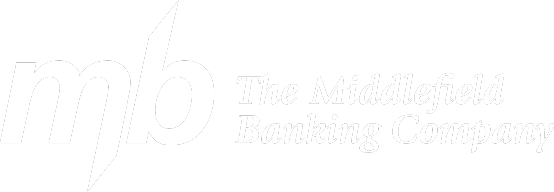How Much Should I Be Putting in Savings
Posted On: July 13, 2021 by The Middlefield Banking Company in: Budget Family General Savings

How much to save is a subject that gets much discussion and a variety of answers in the world of personal finance. The truth is, there’s no one-size-fits-all dollar amount because it all depends on your situation, goals, budget, and ultimately, income. That being said, let’s take a look at some general guidelines on how much you should be saving in different stages of your life.
The 50/30/20 Rule
A popular answer to “how much to save” is the 50/30/20 Rule, from a book by Senator Elizabeth Warren and her daughter. Simply put, you divide your monthly income such that 50% of it goes towards necessities. Next, you save 20% then leave 30% for discretionary expenses. While 20% of your income is a good place to start when saving, there are still different variables to explore before you find an answer that’s right for you.
Saving for Emergencies
Generally, your emergency fund should be worth 3-6 months of your essential expenses. With that in mind, the important thing is to figure out the total cost of your core monthly expenses first. These include bills like rent, transportation, food, insurance, utilities, plus other costs.
Suppose these necessities add up to $2853,00. That means the least amount you need to have in savings would be $8,559 (3 months’ worth of expenses). Ideally, you should have $17,118 (6 months’ worth of expenses). Some experts even advocate saving up to 9 months’ worth of core expenses for more peace of mind. This can be a good idea considering that financial recovery from some adverse life events, like job loss, can take more than six months.
Saving for Retirement
Although retirement savings are more of a long-term goal than your emergency fund, they should not be neglected. Generally, it’s best to put 10-15% of your income toward retirement savings.
This gets easier if you have an employer match. For instance, saving 5% of your income paired with your employer’s 5% match will bring you up to a 10% savings rate. However, if you’re planning to retire earlier, you may need to be aggressive with your retirement plan. To give you an idea, some individuals go as far as to save 50% or more of their monthly income.
Saving for Your Kids
If you’re a parent, you may also want to think about how much money to pass onto your kids. This can be in the form of a college fund, trust fund, or savings account that goes towards securing a better future for your offspring. Take a college fund, for instance.
According to the College Board, the annual cost of college for full-time students in 2020 was between $18,550 and $54,880. So, the amount you save for your kids per month depends on the type of school, how soon you start saving, and how financially secure you want your children to be.
Saving for a Big Goal
Your financial goals may also include saving for a big purchase or expenditure, like a wedding, house, or the holiday of a lifetime. How much you should save here can be tricky because you have to look at how much disposable income you have first. Then you need to consider the ETA for your goal. For instance, when do you want to buy the house or pay for the wedding? Once you take stock of your situation, it’s all a matter of adjusting your expectations or contributions accordingly.
Saving After a Financial Windfall
When your income gets a raise, it’s common for your expenses to also grow. However, your savings rate also deserves a significant boost, especially if you want to achieve your financial goals sooner.
According to Steve Wendel, head of behavioral science at Morningstar, an approach that may help is to only spend a percentage of the raise, depending on how soon you want to hit your goals. He gives the example of how someone who wants to retire in 10 years can save up to 80% of their raise, while a younger person can get away with saving only 40%.
The Bottom Line
Life would be easier if there were a hard and fast rule about how much to put away in savings. On the other hand, it’s great to have some general guidelines to start with because your finances require flexible solutions that match your situation. Hopefully, the information above will point you in the right direction when building your balance.

0 comments